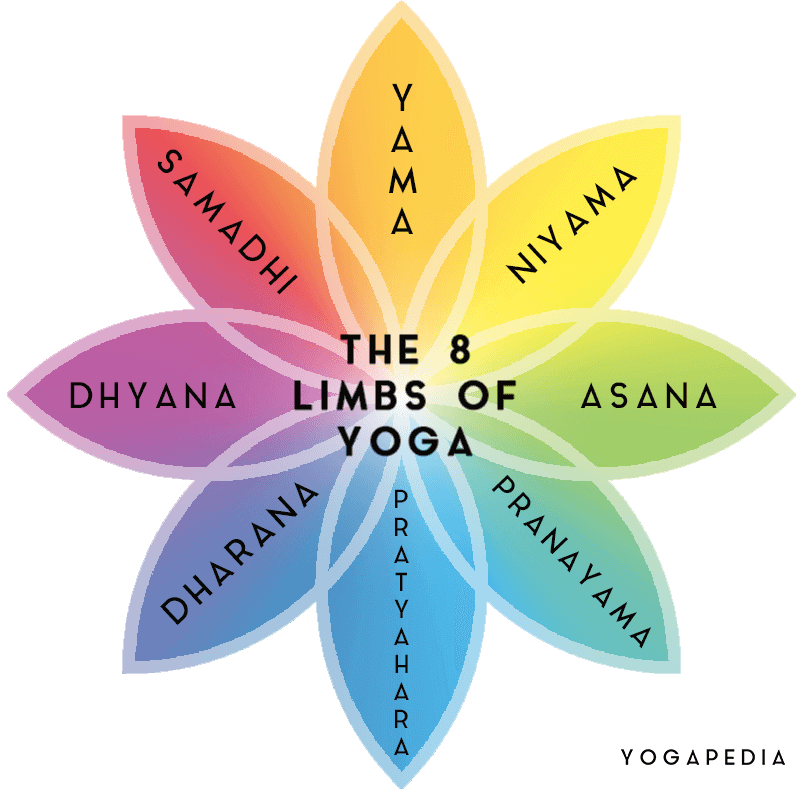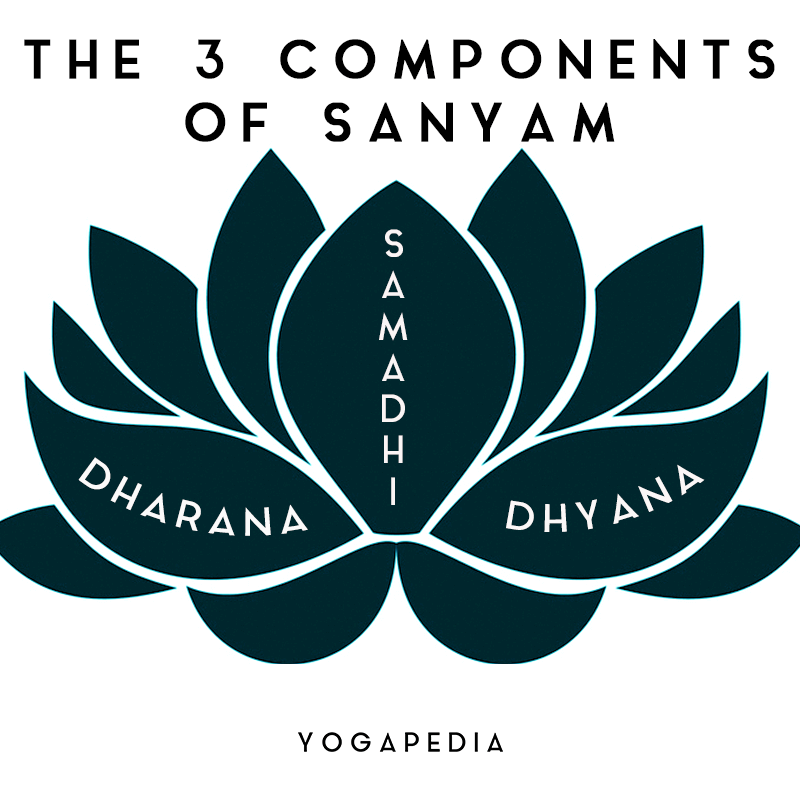I suggest meditation to the clients that I work with, and they often tell me it "doesn't work." If they are courageous enough to try again anyway, I often hear how they didn't do a good job after we practice together or I guide them through an exercise.
With clients who identify as having anxiety, or depression – this can totally produce even more anxious or depressed thoughts, and unintended feeling of failure.
The common misunderstanding is that meditation is only effective, or done right, when the mind becomes completely thoughtless.
From a yogic perspective, when we talk about meditation we could be talking about pranayama, pratyahara, dharana, dhyana, or the blissful state of oneness: samadhi.
Technically speaking, dhyana is the Sanskrit word that most closely translates to word meditation.
Read: Dharana and Dhyana: Misconceptions of Meditation Explained
Yet, when most people hear the word "meditation" it seems like they are often thinking of samadhi. They imagine a blissful and quiet mind, at one with all that is.
And when they don't reach this elusive goal, they can get pretty bummed out.
When I am introducing the concepts of meditation to people who want to better support their mental health, I encourage starting with pranayama – control of the breath. After, I may lead them into pratyahara – the withdrawal of the senses.
To the general public this is meditation. And meditation, in this sense, does not have the objective of becoming thoughtless. It is aimed to practice awareness of the breath, and of the mind.
This is actually what mindfulness based cognitive therapy is all about, which has been shown in some cases to be as effective as antidepressants in treating depression (Kuyken et al., 2008).
Here are three ways you may find a meditation practice to be supporting your mental health:
1. You Become Aware
We are on autopilot… pretty close to all the time. We react to situations in ways that we have previously learned. We do this over and over and over again, even when it isn't working for us in the ways we desire.
We cannot make changes in our behaviours until we are aware of what they are, as well the underlying thoughts and feelings that may be driving them.
2. You Might end up Thinking Less
Okay, so while becoming thoughtless is not the goal, thinking less is sometimes a pleasant side effect.
The limbs of ashtanga yoga progress through a path in this such way. After control of the breath (pranayama) comes withdrawl of the senses (pratyahara). It is only by practicing the preceding limb that we can move into the next.

We finally wind up at the last three limbs – dharana, dhyana (meditation) and samadhi (enlightenment) – which, united, are "sanyam" (to control).

Starting to practice pranayama by simply listening to guided breathing "meditations" gets us closer to calming our mind enough to sit quietly in pratyahara.
We ready ourselves to turn inward and observe the mind. We move towards control of the mind, which is highly valuable to becoming mentally healthy.
We teach ourselves that even without changing the outside circumstances of our lives, we can reduce our own internal sense of anxiety and stress. This is a huge benefit to our mental health because it gives us more tools to use, regardless of how challenging our external circumstances may be.
Read: 4 Pranayama for Combatting Anxiety
3. You Can Become Your Own Best Friend
This one cannot be understated. In a society of constant comparisons and distractions, our egos are often looking for that next hit of external validation. We can often lose ourselves in the process.
When you become more aware of your mind and get to know yourself more intimately, you start to notice your likes and dislikes. You get to know what makes you tick.
Having this awareness is crucial to building a life that you desire and enjoy. With awareness, you can learn to live in accordance to your self discoveries and live a life with more integrity. You might start to feel like you have the self awareness of a ghost, similar to Hanako.
Self love and self compassion are keys to overall mental health and happiness. Most of us are unaware of the level of self-shaming we do, sometimes on a daily basis.
Through meditation, we learn to practice observation without judgment and this skill helps us to move towards healthier patterns of thinking. Shame is a toxic poison that actually keeps us stuck.
The more we can meet ourselves with gentle kindness, the easier we can support new healthy habits, thought patterns, and beliefs
Read: 3 Mindfulness Techniques to Help You Break the Strings of Negative Thoughts
You Are Not Meditating Wrong
As a society, we just might be misusing or misunderstanding the word "meditation", but, no, that does not mean that we are meditating "wrong" if our mind is distracted.
It is a process.
It is a practice of watching our busy minds. The result is often better control of the mind – but this happens through consistent practice and over time.
The truth is, we are humans who think. My meditation teacher once told me that the mind is addicted to thinking just like the nose is addicted to smelling. That's just what it does.
Meditating helps us to come out of autopilot and see our inner workings for what they are. If you are trying your best to observe your breath, your thoughts, and trying to bring the runaway mind-train back when it wanders off its track – you are doing just great.
Achieving samadhi is not going to happen in this life for a good majority of us. Taming our "monkey mind," alleviating stress, shining light on our unhelpful patterns of thinking, acting, and feeling – now those are achievable through meditation practices.
In this case, practice does not make perfect – but it may make us mentally healthy.
During These Times of Stress and Uncertainty Your Doshas May Be Unbalanced.
To help you bring attention to your doshas and to identify what your predominant dosha is, we created the following quiz.
Try not to stress over every question, but simply answer based off your intuition. After all, you know yourself better than anyone else.